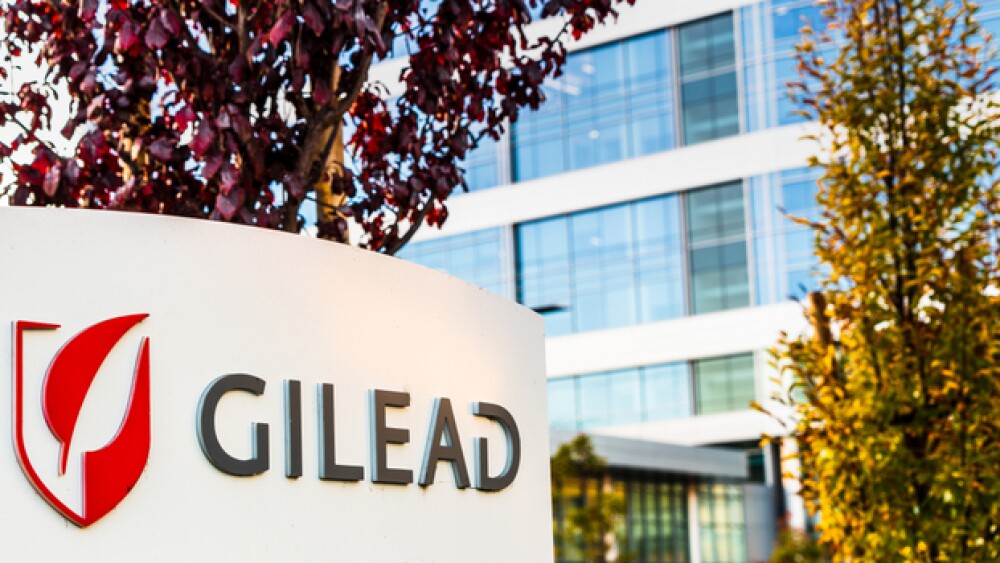The FDA issued a Complete Response Letter regarding Gilead’s Biologics License Application for bulevirtide, citing concerns regarding the manufacture and delivery of the drug.
Courtesy of Sundry Photography/Getty Images
Gilead‘s hopes for an approval in hepatitis delta virus (HDV) infection and compensated liver disease will have to wait following an FDA rejection.
The regulator issued a Complete Response Letter regarding Gilead’s Biologics License Application for bulevirtide, an investigational entry-inhibitor treatment for HDV infection the company gained in its December 2020 acquisition of Germany’s Myr GmbH.
The FDA cited concerns regarding the manufacture and delivery of bulevirtide, Gilead announced Thursday afternoon.
At this time, Gilead noted the FDA has not requested any additional studies to evaluate the efficacy and safety of bulevirtide. The drug was previously granted conditional approval in Europe for the treatment of HDV, the most severe form of viral hepatitis, where it is marketed under the brand name Hepcludex.
There are currently no approved products for the treatment of HDV in the United States.
During a quarterly financial call with investors Thursday, Gilead Chief Medical Officer Merdad Parsey said the company intends to take some time in order to “fully digest” the CRL.
With no safety or efficacy concerns raised by the FDA, Parsey said the company intends to work with the agency to resubmit the BLA as quickly as possible. He said the company remains confident of the benefits bulevirtide can bring to people in the U.S. battling HDV.
“We’ll share an update on the U.S. regulatory pathway when we can,” Parsey said during the call.
Parsey also noted in a separate statement that the FDA’s rejection does not change the safety and efficacy profile that has been observed in clinical trials to date. He also stressed a critical unmet need for HDV treatment in the U.S.
HDV occurs as a co-infection in individuals with the hepatitis B virus and can have mortality rates as high as 50% within five years in cirrhotic patients.
Gilead has a solid presence in HBV with multiple marketed drugs, including Viread (tenofovir disoproxil fumarate, TDF) and Vemlidy (tenofovir alafenamide, TAF). Bulevirtide binds to NTCP, an essential HBV and HDV receptor on hepatocytes, and blocks the ability of the virus to attack.
At the International Liver Congress in June, Gilead presented data supporting the efficacy of bulevirtide.
After 48 weeks of treatment, clinical data showed patients who were treated with two different dose levels of bulevirtide monotherapy, 2 mg and 10 mg, achieved a significantly greater combined virological and biochemical response of 45% and 48%, respectively, compared to patients who had not received antiviral treatment.
Taken alongside other clinical data to date, Gilead stated the benefits of bulevirtide as monotherapy for treating chronic HDV are clinically evident.
Bulevirtide has been granted both Breakthrough Therapy and Orphan Drug designations by the FDA.
Gilead’s “Very Strong Quarter”
Despite the CRL, the company reported what Chief Executive Officer Dan O’Day called “a very strong quarter.” It posted a three month revenue of $7 billion, a slight decrease from the same time the previous year.
The slight drop in revenue was primarily due to decreased sales of the company’s COVID-19 antiviral drug, Veklury. In all, sales of Veklury decreased by 52% to $925 million due to reduced COVID-19 infections.
Primary growth areas for the company were driven by HIV, which generated about $4.5 billion in revenue, and oncology, O’Day said.





